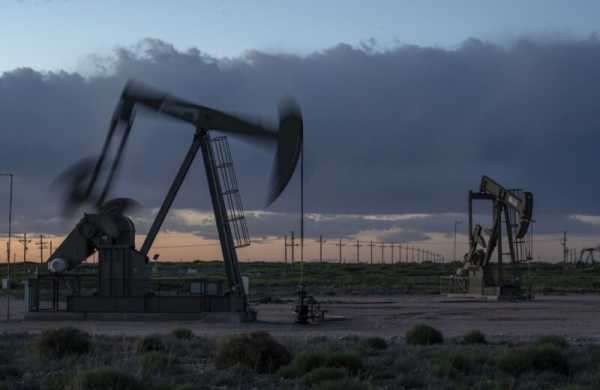Two-thirds of the world’s passenger air fleet is grounded and fewer cars are hitting the roads as COVID-19 rages across the globe. This unprecedented reality has diminished the global demand for oil products and caused a historical fall in their prices.
On April 20, traders were left speechless as worst expectations came true: U.S. crude oil futures for May plunged to negative -$37 for the first time ever. In March, member states of the Organization of the Petroleum Exporting Countries (OPEC) began losing $500 million in revenues daily.
As it is impossible to stop the oil extraction process, companies are still pumping, while traders have only one thought – where to put all this unwanted black gold.
But for Ukraine, highly dependent on imports of petroleum products, the global oil disaster may have a positive result: cheap oil and the ability to store it.
According to Yuriy Vitrenko, executive director of Naftogaz, Ukraine’s national energy giant, Ukraine has immense storage capacity thanks to huge oil storage facilities left from the Soviet Union, including a giant transportation system, one operating refinery in Kremenchuk, and other refineries that have been shut down for a long time but still have room to keep the oil.
The Ministry of Defense also can contribute, as it has a storage facility with the capacity to preserve 1 million tons of today’s cheap oil.
Apart from just storing, Vitrenko is sure that Ukraine can make money on it.
“It seems that the oil storage business is the most profitable right now,” Vitrenko said on Facebook on April 20. “We shouldn’t miss this opportunity and monetize it as much as possible.”
Speaking to the 1+1 TV Channel on April 22, he added: “This will finally help the country to create strategic oil reserves, something that Ukraine has committed to Europe, but has not done yet.”
The oil can enter the country in two ways: through pipelines or by oil tankers coming to Ukrainian seaports.
Sergiy Fursa, an economic analyst at investment fund Dragon Capital, believes that such a crisis, in general, can strengthen the national currency and help Ukraine’s trade balance. He points out that goods currently imported to Ukraine are falling in price, while Ukrainian exports are doing well.
“Today the oil is cheap and Ukraine can benefit from this situation,” Fursa said.
The price for gasoline is also gradually decreasing at filling stations across Ukraine. Starting on March 12, the day when the nationwide quarantine was imposed by the government, the price fell by $0.12, reaching $0.86 per liter on average, according to the A-95 consulting group.
Serhiy Kuyun, director of A-95, says the price is gradually falling every day and forecasts that it may soon be $0.6 per liter.
“I don’t understand why all that’s happening at the moment is called the oil crisis?” Kuyun said. “As for me, this is an oil celebration!”

